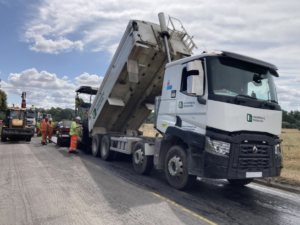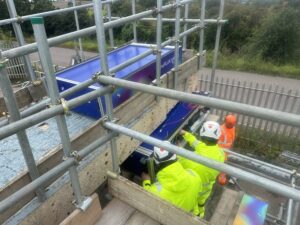The UK body representing transport groups has made an appeal to world leaders, arguing technology alone is not enough to reduce transport emissions.
The Sustainable Transport Alliance (STA) has stated that reducing traffic and shifting towards public and community transport, walking, cycling and shared mobility must be included in the plans for reaching net zero.
The call was backed by Stagecoach, which also urged leaders to put in place firm plans to motivate and incentivise people to change the way they travel, as the COP26 climate change summit marks transport day today.
The transport sector is the biggest source of greenhouse emissions in the UK and the fastest rising globally. The STA highlighted that solely focussing on electric vehicles (EVs) would mean ignoring their social and environmental drawbacks, reports Inisder.co.uk.
This includes a potential 51% increase in road traffic in the UK – and the immediate benefits of shifting more journeys to existing greener forms of transport.
An event in Glasgow brought together UK and Scottish government officials and the Glasgow City Council, with speakers including Scottish Green minister Patrick Harvie; Bernadette Kelly, permanent secretary at the UK Department for Transport; and Anna Richardson, Glasgow City convener for sustainability and carbon reduction.
The STA outlined how both Scotland and the rest of the UK can lead the way globally by drawing on community actions and voices to place walking and cycling, public, community and shared transport at the heart of climate ambitions.
With more than half of all UK transport emissions coming from cars, the STA partners will be discussed COP26 measures that could help the UK meets its net zero commitment, through:
- Introducing progressively tightening targets to reduce motorised traffic and introduce the necessary policies to achieve these.
- Setting short and medium-term carbon reduction targets to deliver on its welcome long-term decarbonisation declarations.
- Ensuring public, shared, community and active travel are attractive and viable alternatives to private car use.
- Investing in social infrastructure to boost communities’ ability to advocate for local needs.
The STA is made up of the Campaign for Better Transport, Community Rail Network, Community Transport Association, Collaborative Mobility UK (CoMoUK), Living Streets, London Cycling Campaign and Sustrans.
Jools Townsend, chair of the STA and chief executive of Community Rail Network, said: “The inspiring campaigners and change-makers from around the world who have been addressing COP26 have been underlining how we must put people, communities and justice at the forefront in tackling the climate crisis, and this very much applies to transport.
“The evidence is clear that we cannot put all our faith in electric cars – we need a more fundamental shift in how we get around, and we have much to gain from this.”
Richard Dilks, chief executive of CoMoUK, said: “The world is watching Glasgow and hoping that countries can come together to tackle the climate emergency.
“While international action is vital, local communities can also make a difference in creating a cleaner, greener transport future.
“By showcasing examples of how to shift people away from private car use, COP26 is an opportunity for Scotland and the UK to demonstrate the role of grassroots action as part of local, national and international transport decarbonisation.”
Martin Griffiths, chief executive of Stagecoach, added: “As the focus at COP26 today turns to transport, it’s crucial that we focus on the most important thing – incentivising people out of cars and onto public transport.
“We need leaders to be honest with citizens that we cannot go on as we are now by simply replacing jams of diesel and petrol cars with jams of electric cars – congestion is costing our economy billions of pounds each year, and that cannot be reduced by technology alone.”























